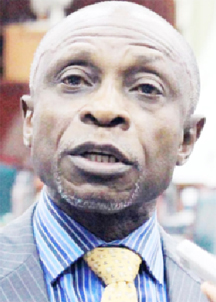The Union of South American Nations (UNASUR) has approached Guyana to attend a meeting, or to agree to a meeting with Venezuela, regarding Caracas’ recent claim to Guyana’s maritime territory, Minister of Foreign Affairs Carl Greenidge says.

“We have of course had, and continue to have discussions with the Ambassador (of Venezuela) who is here, with her Minister in Caracas, and indeed the President sent an envoy not so long ago, with whom we had discussions, and we’ve had an invitation from UNASUR to attend a meeting, or to agree to a meeting with Venezuela on the bilateral front. I would say that all the possible avenues are being explored. We are making sure that the avenues that should be used will be used,” Greenidge was quoted as saying by the Government Information Agency (GINA).
On May 26th, Venezuela’s president Nicolas Maduro issued a Decree purporting to annex maritime zones belonging to Guyana. The Decree was gazetted in Venezuela on May 27th.
Georgetown has said that the Decree of May 26th was a “baseless and shameless” bid to usurp Guyana’s territory and a “flagrant violation” of international law. Greenidge told Parliament that a definitive solution must be found and signalled that the government would be moving for a juridical settlement of the border controversy.
On Saturday, GINA reported that the new claim being made by Venezuela on Guyana’s territory is the subject of high-level discussions. Greenidge said that Venezuela clearly is trying to take advantage of whatever avenue it thinks can serve it well.
“The issue that we’re faced with now is this. Venezuela has issued a decree in law, which law says this area, a very large area of the sea, not only belongs to Venezuela, but it calls upon its navy to enforce this zone, and to exclude others from the zone. Venezuela claims in justification, that the government, (and reading the papers over the last three four weeks,) it claims that the newly elected government, it says that, has been the cause of this decree because it has issued exploration rights to an oil company,” he told GINA.
Greenidge emphasised that the area in which oil exploration is currently underway by ExxonMobil has never been the subject of any claim from Venezuela. “It is a new claim by Venezuela, not a repetition of any claim, it’s a new claim. Secondly, it is not the APNU government that issued the exploration rights, so to suggest that they have to move now because this government has gone a step too far, is not accurate,” he asserted.
He said that in claiming this expanse of territory, the government of Venezuela has not demonstrated and indeed cannot show any reason for so doing. “The principle underlying the claim hasn’t any basis whatsoever in any known formula for allocation of the ocean, save bullyism,” he declared.
Greenidge declined to speculate on what principle the Venezuelans used to arrive at their latest claim. “Let us say that none of the bilaterals to whom I have spoken or multilaterals, can suggest the principle. This area for example where the exploration is being done, lies close, or off the coast of Demerara, it’s about 120 miles from here, you know where Caracas is, and you know where the mouth of the Orinoco is, far away. So you’d have to have been the owner of Demerara in a sense to be able to lay claim to that,” he asserted.
He said that there is no international principle which says every country in South America must have an Atlantic coast or have sovereignty over some section of the Atlantic sea. There is no law in relation to the Caribbean Sea or the Pacific, “so there would be chaos if some president wakes up and says we must have part of the Pacific, Atlantic or Caribbean and Pacific. As regards marine territory, each country defines what it has, and goes to an international body and claims it, I am not aware that the decree is grounded in any such submission,” he declared.
The minister told GINA that territorial issues are not a matter for countries to settle unilaterally and noted that unlike most nations, Venezuela is not a party to the Law of the Sea Convention.
“As regards Guyana and Venezuela, the rights to marine resources arise from rights to land mass, so by virtue of us occupying Guyana we have certain rights… They may not be signatory of the Law of the Sea, but it is not the sea and the lawlessness that is practiced there that determines your land mass. The land mass of Guyana is defined in a treaty…”, he said.
GINA reported that the Ministry of Foreign Affairs is leading the effort to have this latest territorial issue addressed as quickly as possible. According to the report, Greenidge noted that prior to 1992, the ministry was viewed as the “Tip of the Spear” in Guyana’s defence and it has to be restored, “We will work on all the fora, UNASUR, OAS, Commonwealth and so forth. Right now the UN Secretary General has a responsibility and we are going to call on him to exercise that responsibility because the other options have been exhausted, and therefore in order to avoid further damage to Guyana we will call upon him to carry out his duties,” he said.








